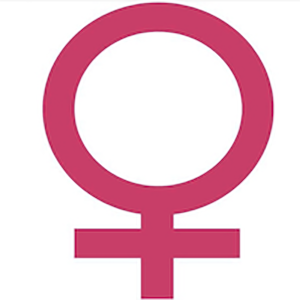Immunohistochemical expression of androgen receptors in urothelial carcinoma of urinary bladder. Is it significant? Experience from coastal India

Accepted: July 14, 2023
All claims expressed in this article are solely those of the authors and do not necessarily represent those of their affiliated organizations, or those of the publisher, the editors and the reviewers. Any product that may be evaluated in this article or claim that may be made by its manufacturer is not guaranteed or endorsed by the publisher.
Background: Bladder carcinoma (BC) ranks second among the genitourinary cancers worldwide. Influence of androgens and expression of androgen receptors in neoplasms are recent findings which were implicated in the development of BC. We aimed to study androgen receptor (AR) expression in bladder urothelial neoplasms and correlate its expression with grade and stage of the tumor. Methods: Immunohistochemistry (IHC) was done on samples collected in a tertiary care hospital over one year consisting of 71 urothelial BC and 20 non-neoplastic urothelial conditions. Two pathologists graded the IHC and nuclear staining was considered as positive expression. Results: AR was expressed in 23.9% (17/71) of bladder urothelial neoplasms. AR was expressed in 25.7% and 22.3% of high and low-grade tumors and 25% and 22.3% of non muscle-invasive and muscle-invasive BC. AR expression had no significant correlation with gender, age (> 50 years), muscle invasion or grade. AR expression was significantly absent in non-neoplastic conditions (p = 0.018). Conclusions: AR has varied expression in BC and it is relatively lower in this study population.
Ploeg M, Aben KK, Kiemeney LA. The present and future burden of urinary bladder cancer in the world. World J Urol. 2009; 27:289-93. DOI: https://doi.org/10.1007/s00345-009-0383-3
Li P, Chen J, Miyamoto H. Androgen receptor signaling in bladder cancer. Cancers. 2017; 9:20. DOI: https://doi.org/10.3390/cancers9020020
Humphrey PA, Moch H, Cubilla AL, et al. The 2016 WHO Classification of Tumours of the Urinary System and Male Genital Organs-Part B: Prostate and Bladder Tumours. Eur Urol. 2016; 1-14. DOI: https://doi.org/10.1016/j.eururo.2016.02.028
Miyamoto H, Yang Z, Chen YT, et al. Promotion of bladder cancer development and progression by androgen receptor signals. J National Cancer Institute. 2007; 99:558-68. DOI: https://doi.org/10.1093/jnci/djk113
Izumi K, Ito Y, Miyamoto H, et al. Expression of androgen receptor in non-muscle-invasive bladder cancer predicts the preventive effect of androgen deprivation therapy on tumor recurrence. Oncotarget. 2016; 7:14153.
Kawahara T, Inoue S, Kashiwagi E, et al. Enzalutamide as an androgen receptor inhibitor prevents urothelial tumorigenesis. Am J Cancer Res. 2017; 7:2041.
Zhuang YH, Bläuer M, Tammela T, Tuohimaa P. Immunodetection of androgen receptor in human urinary bladder cancer. Histopathology. 1997; 30:556-62. DOI: https://doi.org/10.1046/j.1365-2559.1997.5610801.x
Necchi A, Vullo SL, Giannatempo P, et al. Association of Androgen Receptor Expression on Tumor Cells and PD-L1 Expression in Muscle-Invasive and Metastatic Urothelial Carcinoma: Insights for Clinical Research. Clinical Genitourinary Cancer. 2018; 16:e403-10. DOI: https://doi.org/10.1016/j.clgc.2017.09.016
Hata S, Ise K, Azmahani A,et al. Expression of AR, 5αR1 and 5αR2 in bladder urothelial carcinoma and relationship to clinicopathological factors. Life sciences. 2017; 190:15-20. DOI: https://doi.org/10.1016/j.lfs.2017.09.029
Mashhadi R, Pourmand G, Kosari F, et al. Role of steroid hormone receptors in formation and progression of bladder carcinoma: a case-control study. Urology Journal. 2014; 11:1968-73.
Miyamoto H, Yao JL, Chaux A, et al. Expression of androgen and oestrogen receptors and its prognostic significance in urothelial neoplasm of the urinary bladder. BJU international. 2012; 109:1716-26. DOI: https://doi.org/10.1111/j.1464-410X.2011.10706.x
Nam JK, Park SW, Lee SD, Chung MK. Prognostic Value of Sex- Hormone Receptor Expression in Non-Muscle-Invasive Bladder Cancer. Yonsei Med J. 2014; 55:1214-21. DOI: https://doi.org/10.3349/ymj.2014.55.5.1214
Mir C, Shariat SF, Van Der Kwast TH, et al. Loss of androgen receptor expression is not associated with pathological stage, grade, gender or outcome in bladder cancer: a large multi-institutional study. BJU international. 2011; 108:24-30. DOI: https://doi.org/10.1111/j.1464-410X.2010.09834.x
Boorjian S, Ugras S, Mongan NP, et al. Androgen receptor expression is inversely correlated with pathologic tumor stage in bladder cancer. Urology. 2004; 64:383-8. DOI: https://doi.org/10.1016/j.urology.2004.03.025
Chen J, Cui Y, Li P, et al. Expression and clinical significance of androgen receptor in bladder cancer: A meta-analysis. Molecular and clinical oncology. 2017; 7:919-27. DOI: https://doi.org/10.3892/mco.2017.1389
Izumi K, Ito Y, Miyamoto H, et al. Expression of androgen receptor in non-muscle-invasive bladder cancer predicts the preventive effect of androgen deprivation therapy on tumor recurrence. Oncotarget. 2016; 7:14153. DOI: https://doi.org/10.18632/oncotarget.7358
Ide H, Inoue S, Miyamoto H. Histopathological and prognostic significance of the expression of sex hormone receptors in bladder cancer: A meta-analysis of immunohistochemical studies. PloS One. 2017; 12:e0174746. DOI: https://doi.org/10.1371/journal.pone.0174746
Wagih M, Kamel M. Evaluation of androgen receptor status in urothelial carcinoma of the urinary bladder in Egyptian patients: An immunohistochemical study. Afr J Urol. 2020; 26:1. DOI: https://doi.org/10.1186/s12301-019-0014-1
Szabados B, Duncan S, Choy J, et al. Androgen Receptor Expression Is a Predictor of Poor Outcome in Urothelial Carcinoma. Front. Urol. 2022; 2:863784. DOI: https://doi.org/10.3389/fruro.2022.863784
Tripathi A, Gupta S. Androgen receptor in bladder cancer: A promising therapeutic target. Asian J Urol. 2020; 7:284-90. DOI: https://doi.org/10.1016/j.ajur.2020.05.011
Copyright (c) 2023 the Author(s)

This work is licensed under a Creative Commons Attribution-NonCommercial 4.0 International License.
PAGEPress has chosen to apply the Creative Commons Attribution NonCommercial 4.0 International License (CC BY-NC 4.0) to all manuscripts to be published.


 https://doi.org/10.4081/aiua.2023.11514
https://doi.org/10.4081/aiua.2023.11514



